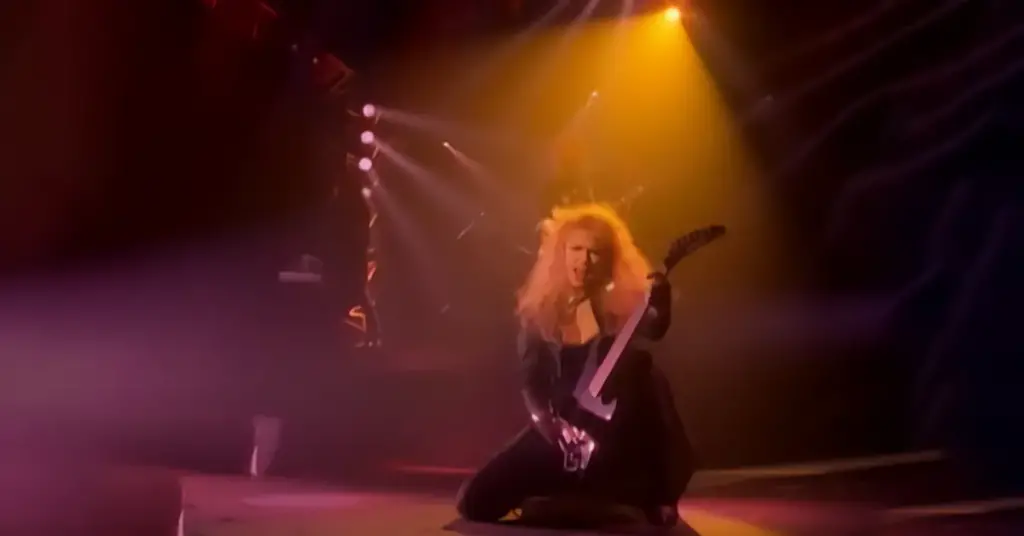By the time Heart released “Alone” in 1987, they were already rock legends. From their hard-rock beginnings in the ’70s with hits like “Barracuda” and “Magic Man,” Ann and Nancy Wilson had proven they could go toe-to-toe with any band, blending muscle and melody like few others.
But “Alone” was something else—a towering, emotionally raw power ballad that didn’t just showcase Ann Wilson’s extraordinary voice; it shook the heavens with it. Released as the lead single from their ninth studio album Bad Animals, “Alone” became one of the definitive power ballads of the decade, cementing Heart’s place in rock history all over again.
A Song That Waited for the Right Voice
“Alone” wasn’t originally a Heart composition. It was written by Billy Steinberg and Tom Kelly, the songwriting duo behind several ’80s megahits (including Madonna’s “Like a Virgin” and Cyndi Lauper’s “True Colors”). The song was first recorded by the writers themselves under the name i-Ten in 1983—but it faded into obscurity.
That is, until it found its way to Heart—specifically to Ann Wilson, whose vocal ability could not only carry the song’s emotional weight but blow it into the stratosphere.
The Sound: Tension, Drama, and Catharsis
“Alone” is masterfully constructed. It opens with a haunting, almost fragile piano line, accompanied by Wilson’s soft, restrained vocals—like she’s holding back a storm.
“I hear the ticking of the clock / I’m lying here the room’s pitch dark…”
Then, slowly, the song builds. Tension swells. Drums crash in. Guitars shimmer. And by the chorus, Wilson unleashes:
“’Til now, I always got by on my own…”
Her voice is thunderous and pure, packed with ache and desperation. She doesn’t just sing the word “Alone”—she howls it, in one of the most spine-tingling vocal deliveries in rock history.
The production, full of glossy ’80s sheen, somehow never drowns the emotion. It only amplifies it, creating a cathedral of heartbreak where every note echoes with longing.
Lyrics: Vulnerability as Strength
“Alone” taps into a universal emotional truth: the fear of unrequited love, the agony of isolation, and the longing for someone who might not even know you exist. It’s both intimate and theatrical, making it perfect for belting out behind a steering wheel or sobbing into a pillow.
“How do I get you alone?”
It’s a question whispered by millions—set here to a mountain-moving melody that makes heartbreak feel somehow heroic.
Chart Success and Cultural Impact
“Alone” became Heart’s biggest hit, reaching #1 on the Billboard Hot 100 and holding the top spot for three weeks in the summer of 1987. It also topped charts around the world and became a staple of both MTV and late-night slow dance playlists.

Critics praised it not just for its grandiosity, but for the sheer emotional force of Ann Wilson’s voice. It also proved that Heart, well into their second decade as a band, could still evolve with the times and dominate the airwaves.
Over the years, “Alone” has been covered by numerous artists (including Celine Dion and Carrie Underwood), but no version has ever captured the original’s volcanic intensity.
Legacy: A Ballad for the Ages
“Alone” remains a cornerstone of the power ballad genre, a song that represents everything great about ’80s rock and the artists who weren’t afraid to wear their hearts on their sleeves—loudly.
For Heart, it was a resurrection. For Ann Wilson, it was a vocal summit few have reached since. For the rest of us, it’s the song that shows up when we feel most vulnerable—and makes that feeling sound absolutely triumphant.
Final Thoughts
“Alone” is more than a ballad—it’s a battle cry from the brokenhearted, delivered with gale-force vocals and unapologetic emotion. It’s the sound of longing turned into art, of strength born from sorrow.
So if you’ve ever loved someone from afar, waited on a phone that didn’t ring, or wondered how to break through silence—
Heart already asked the question for you.
How do I get you alone?
And then they made it echo through eternity.


Facebook Comments